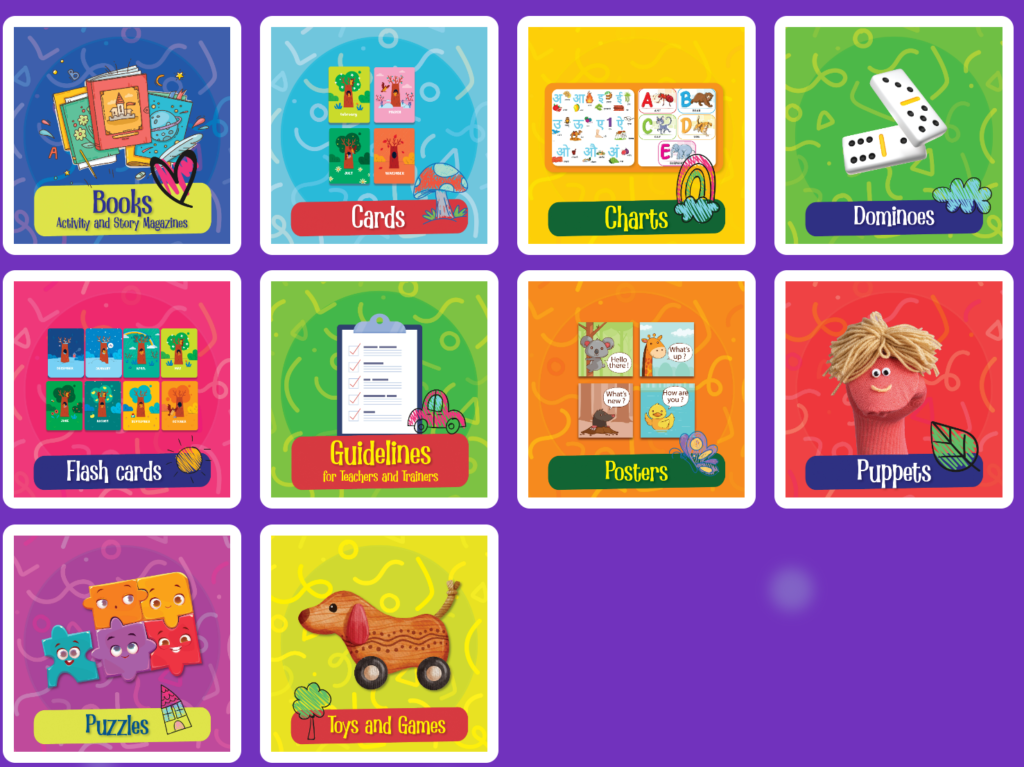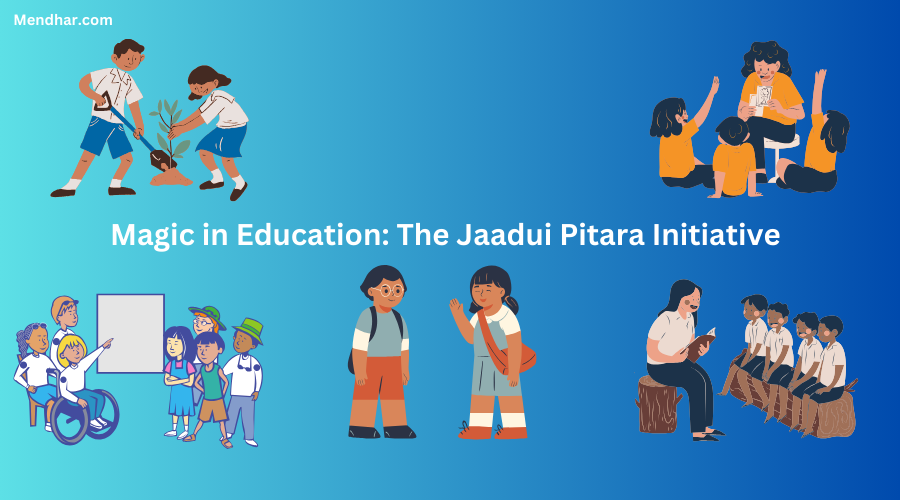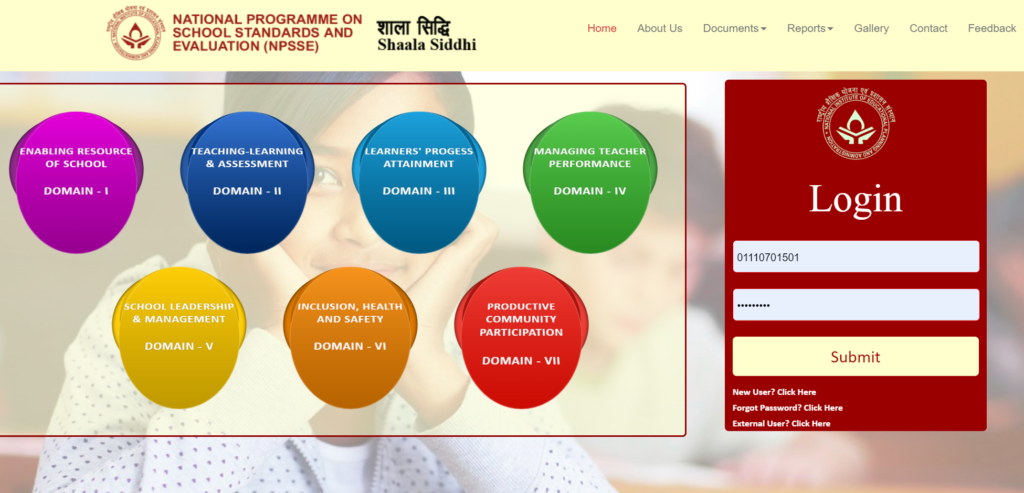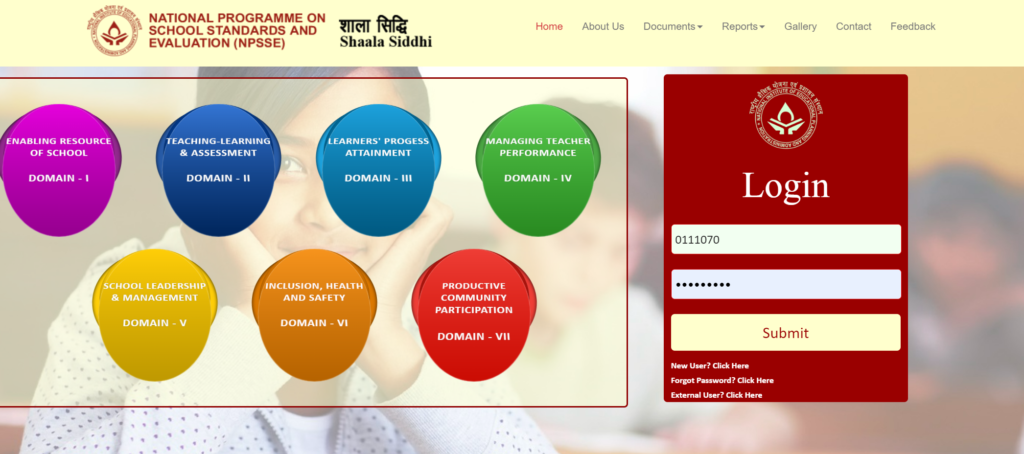
In a bid to revolutionize early childhood education and embrace the transformative vision of the National Education Policy 2020, the Ministry of Education has introduced a groundbreaking initiative known as “Jaadui Pitara”. This initiative, unveiled by Union Education Minister Shri Dharmendra Pradhan, marks a significant milestone in the journey towards a vibrant and inclusive learning landscape for children aged 3-8 years.
At the heart of the Jaadui Pitara initiative lies the core principle of ‘learning through play’, a concept deeply ingrained in the National Curriculum Framework for Foundational Stage (NCF-FS). The NCF-FS emphasizes that children in the foundational stage learn most effectively through play, aligning with research findings from diverse fields such as neuroscience and education.
The Minister emphasized that NCERT, functioning as a national think-tank, should harness technology to translate the content of the ‘Jadui Pitara’ into all Indian languages. This initiative aims to broaden its accessibility and ensure its availability to all SCERTs, thereby reshaping early childhood care and education in the country. These resources are proposed to be digitally accessible through the DIKSHA platform, both on its portal and mobile application. Additionally, the Minister underscored the importance of having all foundational learning materials provided in the mother tongue. NCERT has also developed a trainer’s handbook aligned with the ‘panch koshiya vikash’ framework and the curricular objectives of NCF-FS, which will guide future teacher training sessions at the Foundational Stage.
The salient points of the Jaadui Pitara initiative are as follows:
Play-Based Learning: Recognizing the critical role of play in early childhood development, the Jaadui Pitara initiative promotes a holistic approach to learning, where children engage in playful activities to explore and understand the world around them.
Five Domains of Development: The initiative focuses on fostering development across five key domains: Physical Development, Socio-emotional and Ethical Development, Cognitive Development, Language and Literacy Development, and Aesthetic and Cultural Development. Additionally, Positive Learning Habits have been identified as another essential domain at this stage.
Diverse Learning Resources: To facilitate play-based learning, a wide range of resources are provided, including toys, puzzles, puppets, posters, flashcards, worksheets, and attractive books. These resources are designed to cater to the diverse needs and interests of children and are rooted in the local context and culture of India.
Flexibility and Accessibility: The Jaadui Pitara initiative offers flexibility to accommodate a variety of learning resources and local contexts. It empowers educators to leverage the richness of their surroundings and community to create meaningful learning experiences for children.
Digital Accessibility: Recognizing the importance of digital platforms in modern education, the initiative aims to make Jaadui Pitara resources digitally available on the DIKSHA platform, both as a portal and a mobile app. This ensures widespread accessibility and facilitates seamless integration into teaching practices across the country.

In his address, Union Education Minister Shri Dharmendra Pradhan emphasized the historic significance of the Jaadui Pitara initiative in making the learning landscape more vibrant and inclusive. He underscored the commitment of the government to leverage technology to translate Jaadui Pitara materials into all Indian languages, thereby ensuring accessibility for all.
The launch of Jaadui Pitara heralds a new era in early childhood education, where learning becomes a magical journey of discovery and exploration. As we embark on this transformative path, guided by the principles of the National Education Policy 2020 and the National Curriculum Framework, we reaffirm our commitment to providing every child with a solid foundation for lifelong learning and success.
At this stage, development encompasses Physical Development, Socio-emotional and Ethical Development, Cognitive Development, Language and Literacy Development, Aesthetic and Cultural Development, and Positive Learning Habits, forming another domain of growth. To facilitate play-based learning, a diverse array of resources beyond traditional books is essential. This includes toys, puzzles, puppets, posters, flashcards, worksheets, attractive books, and incorporating the local environment, context, and community into learning experiences. Rooted in life and the Indian context, the ‘Jaadui Pitara’ breathes life into these principles by offering a wide range of resources and the flexibility to incorporate various local materials, thereby enriching the learning journey.

Frequently Asked Questions (FAQs) About the Jaadui Pitara Initiative:
1. What is the Jaadui Pitara initiative?
– The Jaadui Pitara initiative is a revolutionary approach to early childhood education introduced by the Ministry of Education, Government of India. It emphasizes learning through play and aims to provide a holistic and inclusive learning experience for children aged 3-8 years.
2. What is the core principle of the Jaadui Pitara initiative?
– At the heart of the Jaadui Pitara initiative lies the principle of ‘learning through play’. It recognizes the importance of play in fostering holistic development and creating meaningful learning experiences for children in the foundational stage.
3. What are the key objectives of the Jaadui Pitara initiative?
– The Jaadui Pitara initiative aims to:
– Promote play-based learning for children aged 3-8 years.
– Foster development across five key domains: Physical Development, Socio-emotional and Ethical Development, Cognitive Development, Language and Literacy Development, and Aesthetic and Cultural Development.
– Provide a wide range of diverse learning resources rooted in the local context and culture of India.
– Ensure digital accessibility of resources through platforms like DIKSHA.
4. Who is the target audience for the Jaadui Pitara initiative?
– The Jaadui Pitara initiative is primarily designed for children aged 3-8 years who are in the foundational stage of education. However, it also benefits educators, parents, and caregivers involved in the early childhood education process.
5. What types of learning resources are included in the Jaadui Pitara?
– The Jaadui Pitara initiative provides a diverse range of learning resources, including toys, puzzles, puppets, posters, flashcards, worksheets, and attractive books. These resources are designed to engage children in playful and interactive learning experiences.
6. How can educators and parents access Jaadui Pitara resources?
– Jaadui Pitara resources are made digitally available on the DIKSHA platform, both as a portal and a mobile app. Educators and parents can access these resources online and utilize them to facilitate learning activities for children.
7. Is the Jaadui Pitara initiative aligned with educational policies and frameworks?
– Yes, the Jaadui Pitara initiative is aligned with the National Education Policy 2020 and the National Curriculum Framework for Foundational Stage (NCF-FS). It reflects the principles and objectives outlined in these policy documents and aims to bring them into practice through innovative learning approaches.
8. Who launched the Jaadui Pitara initiative?
– The Jaadui Pitara initiative was launched by Union Education Minister Shri Dharmendra Pradhan, along with other prominent figures in the education sector, including Minister of Education, Smt Annapurna Devi, and Dr. K Kasturirangan, Chairman of the National Steering Committee on National Curriculum Framework.
9. What is the significance of the Jaadui Pitara initiative for early childhood education in India?
– The Jaadui Pitara initiative marks a significant milestone in early childhood education in India by promoting a play-based learning approach and providing access to quality learning resources for children aged 3-8 years. It aims to lay a strong foundation for lifelong learning and development.
10. How can stakeholders contribute to the success of the Jaadui Pitara initiative?
– Educators, parents, policymakers, and other stakeholders can contribute to the success of the Jaadui Pitara initiative by actively engaging with its resources, incorporating play-based learning approaches into teaching practices, and advocating for its widespread adoption in early childhood education settings.



Pingback: Early Childhood Care and Education According to NEP 2020 -